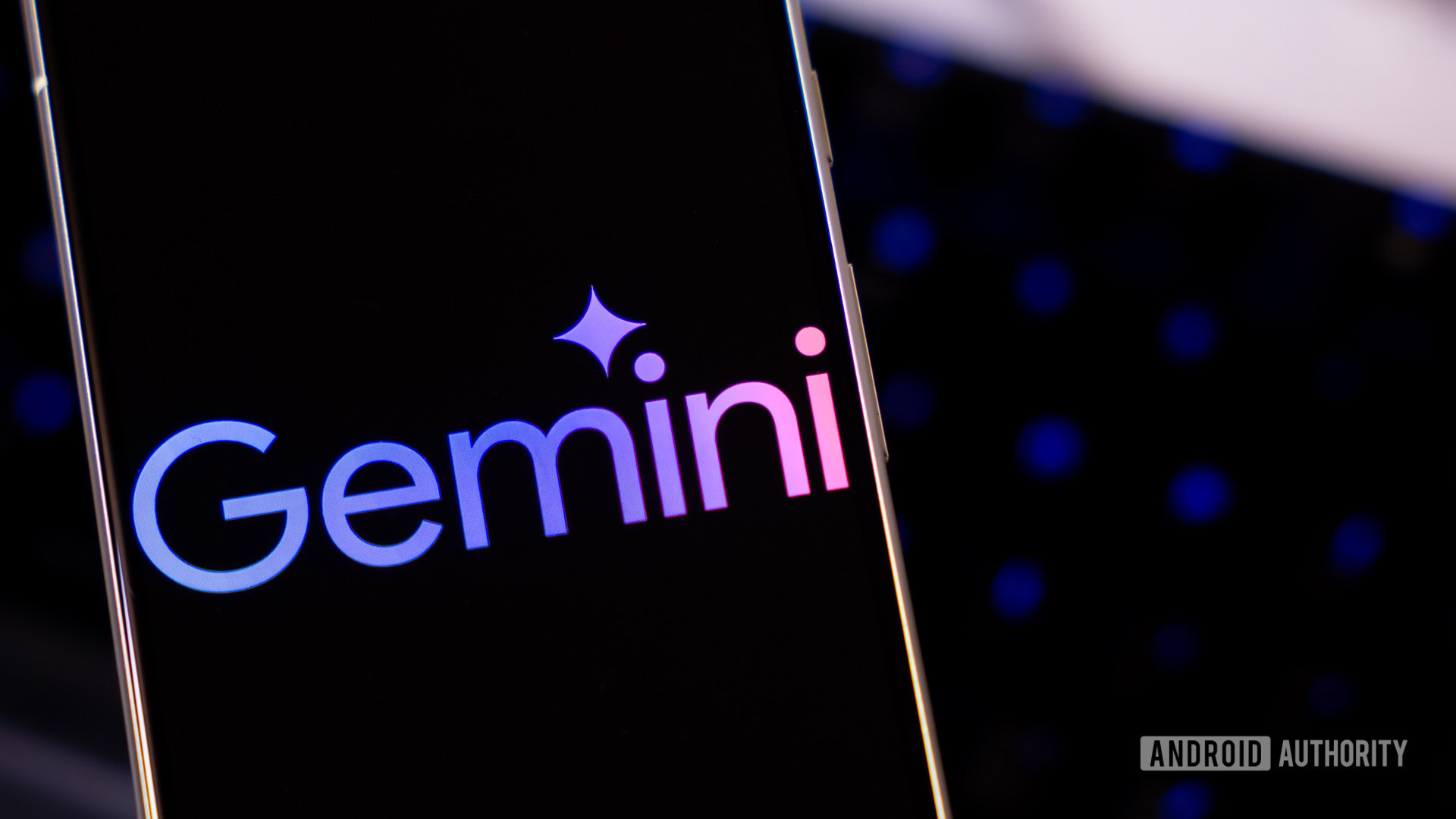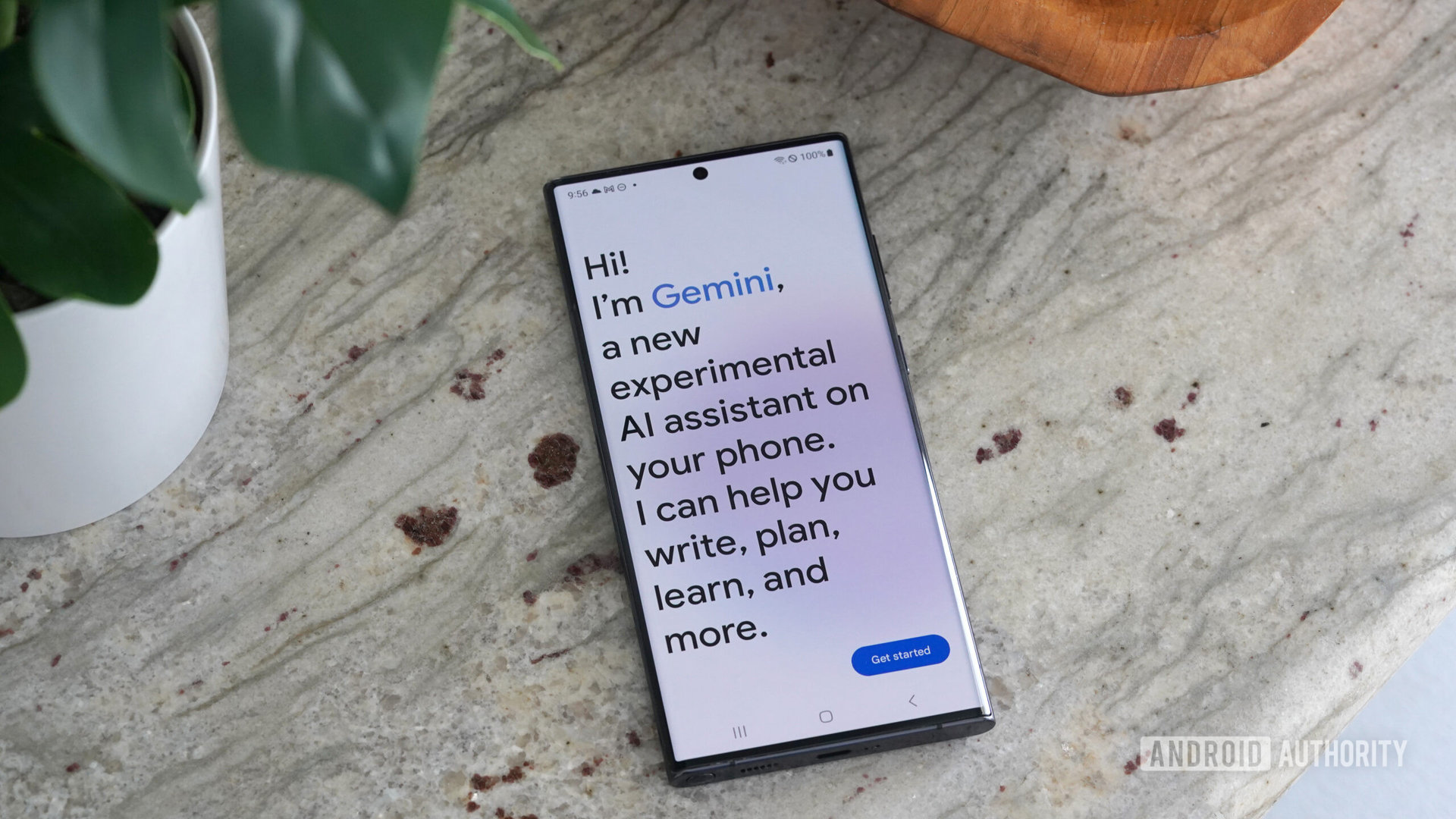Affiliate links on Android Authority may earn us a commission. Learn more.
Google is breaking too many things in a rush to lead on AI

“Move fast and break things,” Zuckerberg’s early Facebook motto perfectly encapsulates the need to dispense with convention to pursue innovation in a quickly evolving industry. After a slow start, Google appears to have unofficially adopted the same sentiment as it rushes into the AI space. However, recent mishaps suggest that Google’s Gemini is placing too much emphasis on the “break things” part of the equation, alienating users in the process.
It’s been a particularly bad few weeks for Google’s AI team. First, the company hit pause on Gemini’s image generation capabilities after it produced insensitive and historically inaccurate pictures. Whether a byproduct of intentional algorithm adjustments or simply a reflection of the early state of Google’s model, the incident was a public embarrassment. It hit Alphabet’s stock price (at least temporarily) again and even cornered co-founder Sergey Brin into a rare admission that the company “messed up.”
Controversial image generation and ditching the Pixel 8 are just the latest casualties in Google's rush for AI.
Google quickly followed up by revealing that its affordable flagship Pixel 8 smartphone won’t receive the Gemini Nano large language model (not to be confused with its Gemini app alternative to Assistant) currently making its way to the top-tier Pixel 8 Pro handset. Citing unspecific “hardware limitations,” two smartphones billed as the future of consumer AI — both with seven years of updates ahead of them — are now on two very different trajectories. Worse for Pixel 8 owners, Gemini Nano is coming to phones from other manufacturers.
There’s also no word on if or when Nano will make its way to older Pixel handsets, which also launched with the promise of regular, albeit unspecified, future updates. If Google can’t bring the bulk of its existing customers into its AI future, what hope does it have to win over those wedded to Apple’s or Samsung’s ecosystems?
Do you regret buying the vanilla Pixel 8 model?
I can only surmise that the ad-hoc nature of Google’s AI roadmap has made it impossible for the seemingly noncommunicable internal development teams to operate in the same chapter, let alone on the same page of the AI playbook. Frustratingly for both consumers and the industry, Google has by far the greatest number of pieces it could slot together, operating as it does at both the developer and product ends of the AI market. Instead, it risks being outmaneuvered by seemingly less equipped rivals, such as Samsung’s AI-powered Galaxy S24 series, which uses Google’s own technology.

Unfortunately, these are just the latest in a growing list of nervous incidents seemingly caused by the explosive arrival of OpenAI’s ChatGPT. Early versions of Google’s Bard gave incorrect answers to questions, hallucinated facts, and struggled with simple maths. Google’s model has improved since then, but early Bard was more of a kneejerk response rather than a planned product to lead the market.
After rushing to get something — anything — on the market, Google has been left to cobble last year’s AI initiatives into something approaching a coherent strategy. However, this year’s baffling Bard/Gemini rebrand has left consumers, enterprise users, and investors scratching their heads, wondering which Gemini version does what and which subscription or service is required. Even the AI business strategy seems rushed.
Broken products and an incoherent strategy risk tipping the scales too far.
Depressingly, anyone familiar with Google’s product history should have seen this coming. The brand is infamous for scattergun product launches and a short attention span for those who don’t make the cut. While this is bad enough in usual circumstances, AI development is fraught with additional difficulties that make a cautious approach to innovation more desirable.
Between the risks of bias and misuse, privacy concerns, regulatory compliance, and the well-documented ethical pitfalls, “move fast and break things” isn’t a recipe for AI success. It might even be doomed to failure. By comparison, OpenAI has been more measured in its rollout and messaging. Despite its own gaffs and setbacks, consistency has contributed significantly to its position as the market leader.
There’s still a long way to go in the AI arms race, and recent setbacks can be overcome. Perhaps Google’s deep ecosystem has enough potential for AI integration to be a winner either way. In which case, this might all be forgiven as teething issues in some distant future. However, Google already isn’t in the lead on AI, and a failure to learn from recent mistakes could do more than just harm its reputation.